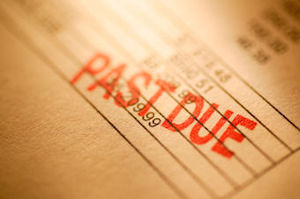KEEP YOUR PROPERTY.
Cars and Bankruptcy
 Filing for bankruptcy can be a challenging decision, especially when it comes to your assets, including your car. For many in Wenatchee, Washington, the car is their lifeline, essential for daily life, whether commuting to work, running errands, or attending to other responsibilities.
Filing for bankruptcy can be a challenging decision, especially when it comes to your assets, including your car. For many in Wenatchee, Washington, the car is their lifeline, essential for daily life, whether commuting to work, running errands, or attending to other responsibilities.
Understanding how bankruptcy affects car ownership is crucial when considering filing for bankruptcy in Chelan County. A skilled Wenatchee bankruptcy attorney can fill you in on the process and what you have to do to qualify while still keeping your most essential assets.
How Bankruptcy Affects Your Car in WenatcheeWhen you file for bankruptcy in Wenatchee, your car may be impacted, depending on whether you file under Chapter 7 or Chapter 13. Each of these has its own implications for vehicle ownership and debt.
Chapter 7 Bankruptcy and Your CarChapter 7, commonly known as a liquidation bankruptcy, allows you to eliminate unsecured debts like credit card balances and medical bills. However, there are some important factors to remember when it comes to your vehicle.
- Exemptions: Washington has a motor vehicle exemption that may allow you to keep your car if its equity falls within the allowed limit. As of recent laws, Washington residents can exempt up to $3,250 in equity for a single vehicle.
- Loan Status: If you are making car payments, you must continue to avoid repossession. You can likely keep your vehicle if your loan is current and your car’s equity falls under the exemption limit.
- Surrendering the Car: If the car payments are unaffordable, you may choose to surrender the vehicle and discharge any remaining loan balance in bankruptcy.
Chapter 13 bankruptcy allows you to restructure your debts into a repayment plan that you follow over three to five years. It offers more flexibility when it comes to keeping your car.
- Catch Up on Payments: If you are behind on your car payments, Chapter 13 can help you catch up through a structured repayment plan.
- Reducing Loan Amounts: If your car loan is older than 910 days (approximately two and a half years), you may qualify for a cramdown, which reduces the loan amount to the car’s fair market value.
- Stopping Repossession: Filing for Chapter 13 bankruptcy immediately stops repossession efforts under an automatic stay (11 U.S. Code § 362), allowing you to reorganize your finances while keeping your vehicle.
If you rely on your vehicle, you should review your options for keeping it during the bankruptcy process.
- Redeem the Vehicle (11 U.S.C. § 722): If you can pay a lump sum for your car’s current market value, you might be able to redeem it rather than continue with an expensive loan
- Washington’s Motor Vehicle Exemption: If the equity in your car is within the exemption limit, it might be protected from liquidation.
- Ride Through (Limited Option): Some may continue to make payments without reaffirming, though the lender may still choose to repossess the vehicle.
- Cramdown: As previously discussed, you may be eligible to reduce the loan balance to the car’s current market value if your loan is older than 910 days.
- Lower Your Interest Rate: In some cases, you can even try to reduce the interest rate on your vehicle.
Understanding these laws is essential when determining the right approach to handling your vehicle in bankruptcy. A bankruptcy attorney in Wenatchee can help interpret these laws and apply them to your situation.
Frequently Asked Questions About Cars and Bankruptcy in WenatcheeIn Chapter 7, the lender can repossess your car if you are behind on your payments, unless you catch up or reaffirm the loan. On the other hand, you can include overdue payments in a Chapter 13 repayment plan to avoid repossession.
Yes, but it might be more challenging, especially right after you file. After Chapter 7, your bankruptcy remains on your credit report for 10 years. However, you can typically qualify for a car loan within one to two years. During Chapter 13, you need court approval to finance a vehicle before your repayment plan ends.
Chapter 7 doesn’t discharge parking tickets or toll violations because they are considered fines owed to the government. Chapter 13 allows you to include these debts in your repayment plan, which can help reduce your financial burden.
It depends. If you have a second car for work, medical needs, or family use, the court will allow it. However, the bankruptcy trustee might require that you sell it to repay your creditors (Chapter 7) or factor it into your repayment plan (Chapter 13) if there is significant equity in the second car.
Yes, you can assume the lease and continue making payments, or reject it, return the car, and discharge the remaining balance. In Chapter 7, you must decide quickly to assume or reject the lease, while lease payments can be included in your repayment plan in Chapter 13.
Choosing the right bankruptcy type to file under depends on your income, assets, and goals. A bankruptcy attorney in Wenatchee can help you determine the right course of action for your situation. They will review your finances, ensure you qualify, and do everything in their power to protect your assets.
Don’t feel like you have to go through this process alone. Our attorneys in Chelan County have years of experience and are ready to help you fight to regain financial stability. We will ensure your rights are protected and your case is successful. So, if you’re considering bankruptcy in Washington, consulting one of our attorneys is a good way to get the financial relief you need.
 Washington State Bankruptcy Lawyers, PLLC Home
Washington State Bankruptcy Lawyers, PLLC Home















